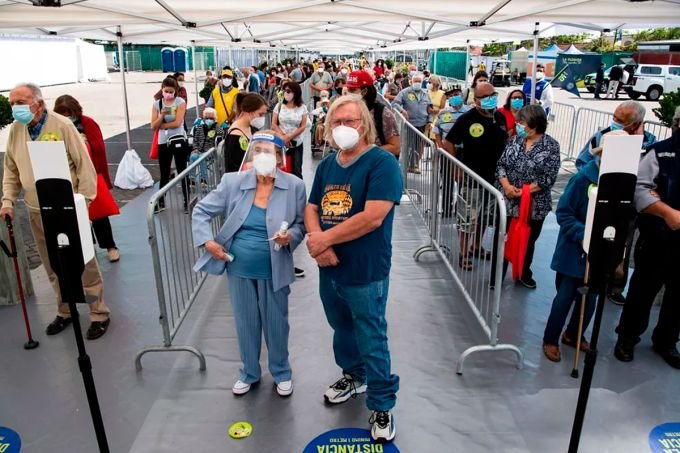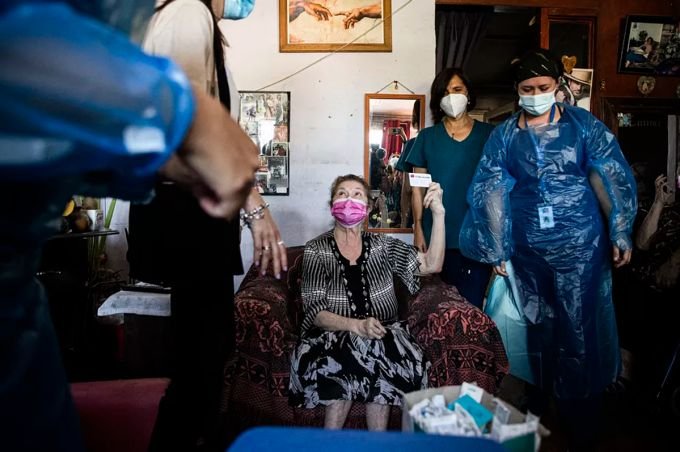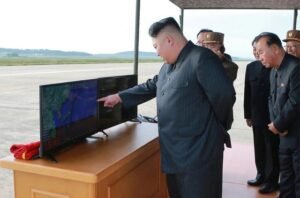
Lessons from the fastest vaccination country in the world 6
On March 9, Our World in Data organization announced data showing that Chile surpassed Israel to become the country with the most people vaccinated against Covid-19 in the world.
The country of 18 million people has injected about 5 million doses of Covid-19 vaccine, nearly a quarter of the population, since the start of the campaign in December 2020.
Methodical vaccination plan
Chile’s success is due to its existing health infrastructure and centuries of experience implementing mass vaccination campaigns.
`Chile has a strong primary health care system, a flexible vaccination program with electronic records, which makes everything quick and organized,` said Eduardo Undurraga, public health expert and adjunct professor.
The government tries to bring vaccines as close to the people as possible, setting up vaccination sites at universities or stadiums.
Elderly people line up to receive Covid-19 vaccine from Chinese pharmaceutical company Sinovac in Santiago.
Roberto Orellana Ovalle, a hospital manager who lives on the outskirts of Santiago, said the vaccination process in Chile is orderly, fast and effective.
Pediatrician Joxelin Flores Taborda, Santiago, said that vaccines bring hope.
`We don’t know if it’s over yet. But at least the hope is tangible. It’s something you can feel,` she said.
Buy from all sources strategy
Chile reported its first case of nCoV infection on March 3 last year.
`They focused on diversity early on. They looked at Western products, considered Chinese vaccines and joined Covax,` Katherine Bliss, senior fellow in global health policy at the Center for Global Health Research, said.
Chile bet on many doors, making transactions when the effectiveness and safety of the vaccine have not yet been confirmed.
`The government buys more vaccines than necessary to provide them to the people, of course they are criticized for limiting other countries’ access to vaccination. But certainly for Chileans, this is an advantage

People get vaccinated against Covid-19 at a stadium.
Chile is open to pharmaceutical companies for phase 3 clinical trials, including Sinovac, China’s CanSino, US Johnson & Johnson and Britain’s AstraZeneca.
`This brings the experience of different companies with vaccines, which is also an advantage when negotiating to buy,` said Katherine Bliss.
As of March 1, according to the Ministry of Finance, Chile successfully negotiated 14 million vaccine doses with Sinovac (received nearly 10 million doses);
Chile is also a member of Covax – the World Health Organization’s (WHO) equitable vaccine distribution initiative, preparing to receive 7.6 million vaccine doses through this mechanism.
Chile buys vaccines from many sources, everywhere, without being influenced by political factors.
`One of the most important things is that politics is never considered. It all depends on science and technology,` said Deputy Minister Paula Daza.
Extensive vaccination experience
Chile’s population is not large, but is scattered across more than 4,800 km of the country, along the west coast of South America.
Chile has a healthcare model that blends public and private, and has been criticized for creating inequality.
The National Immunization Program originated a century ago, in the late 1800s to combat smallpox epidemics.

Chile’s Ministry of Health sent medical staff to vaccinate residents who cannot go to public places.
That infrastructure and experience allowed Chile to launch vaccinations from day one.
`Once the vaccine arrives, we immediately distribute it to people effectively. People understand and trust from previous successes, this is also extremely important,` Rafael Araos, anti-Covid scientific advisor
In addition to public clinics, the government set up mobile vaccination booths in shopping centers, universities, soccer fields, etc. The country currently has 1,400 sites.
Basically, Chile has achieved its initial goal of vaccinating 5 million people by the end of March. But the country is still in the early days of the campaign.



